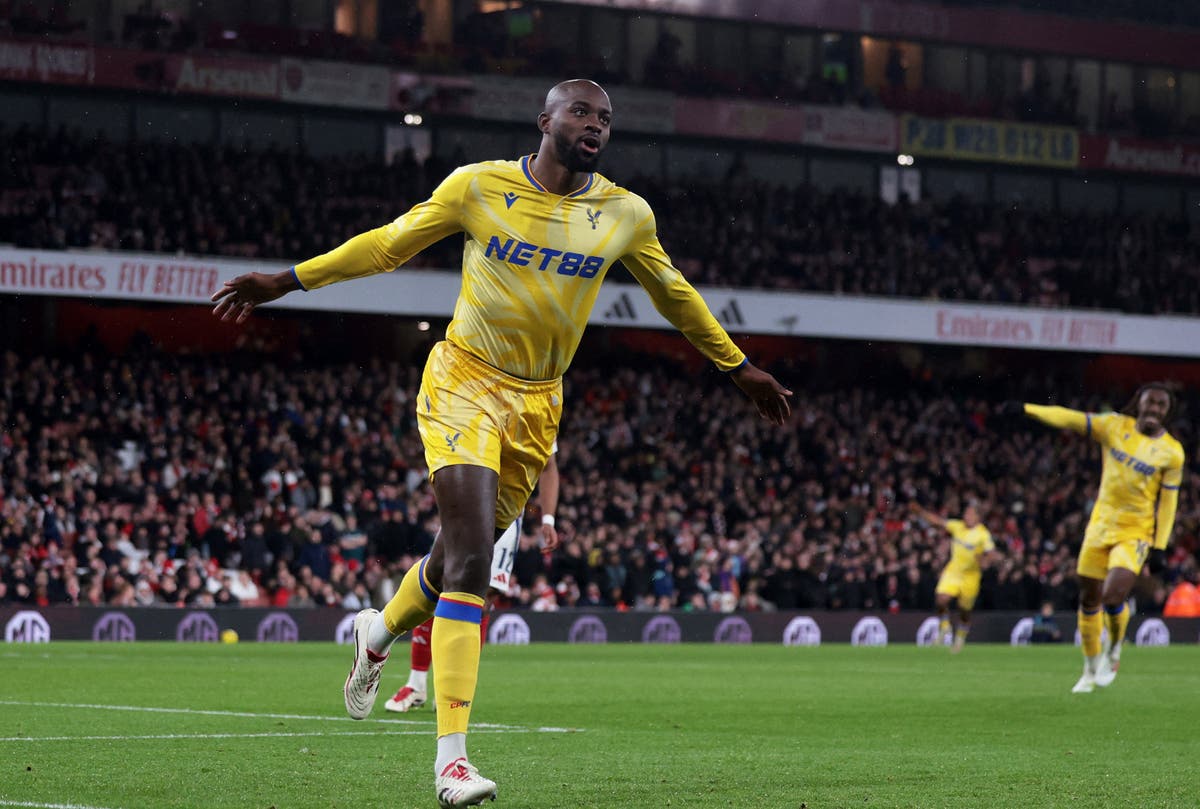In the immediate aftermath of the Manchester derby, Pep Guardiola was dumbfounded. He wasn’t, for once amid recent form, the only one. It was a common sensation around the Premier League over the weekend, which seemed to reach new levels of chaos.
Even one of the dullest Manchester derbies in recent history ended up transforming into one of the most sensational, both for the late turnaround and its significance. There was even the drama of the brilliant Amad Diallo vindicating Ruben Amorim’s decision to drop Marcus Rashford and Alejandro Garnacho. Tottenham Hotspur went 3-0 up at Southampton within 14 minutes, which led to one of two managerial sackings on the same day. Both Liverpool and Arsenal slipped, while Nottingham Forest continued to defy expectations.
Whatever the fair criticisms of the competition’s many modern issues, the Premier League certainly gives.
The Premier League will also take, and potentially from those who most benefited over the last few days.
One of the reasons this kind of unpredictability is happening is because so many clubs are enduring the effects of the most intense ever football calendar, with players also struggling from increasing physical load over three years since the pandemic. And it’s about to get worse.
The famously frenetic Christmas period starts with next weekend’s fixtures, and that’s before a first season that sees European football take place in January. The clubs involved will also be conscious of finishing as high as possible in their continental leagues, so as to avoid the prospect of two extra play-off games. City are likely to need the latter just to get through to the last 16.
Maybe it’s just as well that Spurs eliminated Guardiola’s side from the Carabao Cup, even if that did trigger this crisis. Semi-finalists in that cup who also participate in Europe could end up facing 11 matches in 35 or 37 games from 1 January. Squads are going to be pushed to the limit.
This isn’t so much a fixture list as a formula for further chaos. Aside from the difficult rhythm of constantly going every three days, managers will encounter the disruption of players needing to be rested and others getting injured, while teams won’t be fully tuned.
One of the issues, as Amorim has already found, is that there’s no time to train tactically. Managers have virtually no space to do work on shape. There are going to be gaps to exploit. Guardiola is known to feel it is a key factor in City’s decline, which is why a rare week off before the next league game may be so important to him.
That isn’t just an issue for the most ideological managers, either, especially with how tactically sophisticated the Premier League’s coaches now are. So much of this works both ways.
One of the problems that clubs outside of European competition have always had at Christmas is that they are not conditioned for such an intense burst of games, so suddenly need to lower training. That leaves them more susceptible. They’re not as physically or tactically sharp.
The “PSR era” has added a new dimension to this, too. So many clubs are attempting to belatedly respond to years of paying huge wages but now have little headroom. Virtually all managers feel there are gaps and shortcomings in their squads, but profit and sustainability rules mean that nearly everyone has to sell before they can buy. These are the grounds for stasis in the January market and more unpredictability on the pitch.
It’s compounded by some of the strategic decisions clubs have had to take. One senior Premier League executive was recently talking about how the rules resulted in the stance that 85 per cent of their playing wages will go towards those who regularly appear. That is of course sensible and can create some tightly coherent teams. The risk is the huge drop-off if any of the senior players get injured, since the wage figures denote that there’s such a gap between the starters and their replacements.
Not every club has this policy but many think along similar lines. You only have to look at how Arsenal suffered without Martin Odegaard and the obvious example of a Rodri-less Manchester City. The latter has taken on the weight of Liverpool’s loss of Virgil van Dijk in 2020-21.
It’s why some around the Premier League even talk about how it might only take a brief spell on the sidelines for one of Van Dijk or Mohamed Salah for there to be a properly intense title race. It’s sad to say that the schedule of the next six weeks makes that more likely. This is not the solution to football’s problem of financial disparity.
It is nevertheless what clubs have to work around, and the wider point is that it could result in even stranger things in the second half of this season. Players will be missing or just tired. Teams are going to struggle to sustain consistency. Could this be how Chelsea win a title, especially with how they play a second string in their Europa Conference games? Could we see a shock Champions League qualifier?
There’s never been a period like it, and it may also lead to a range of results we have rarely seen.
Source: independent.co.uk



